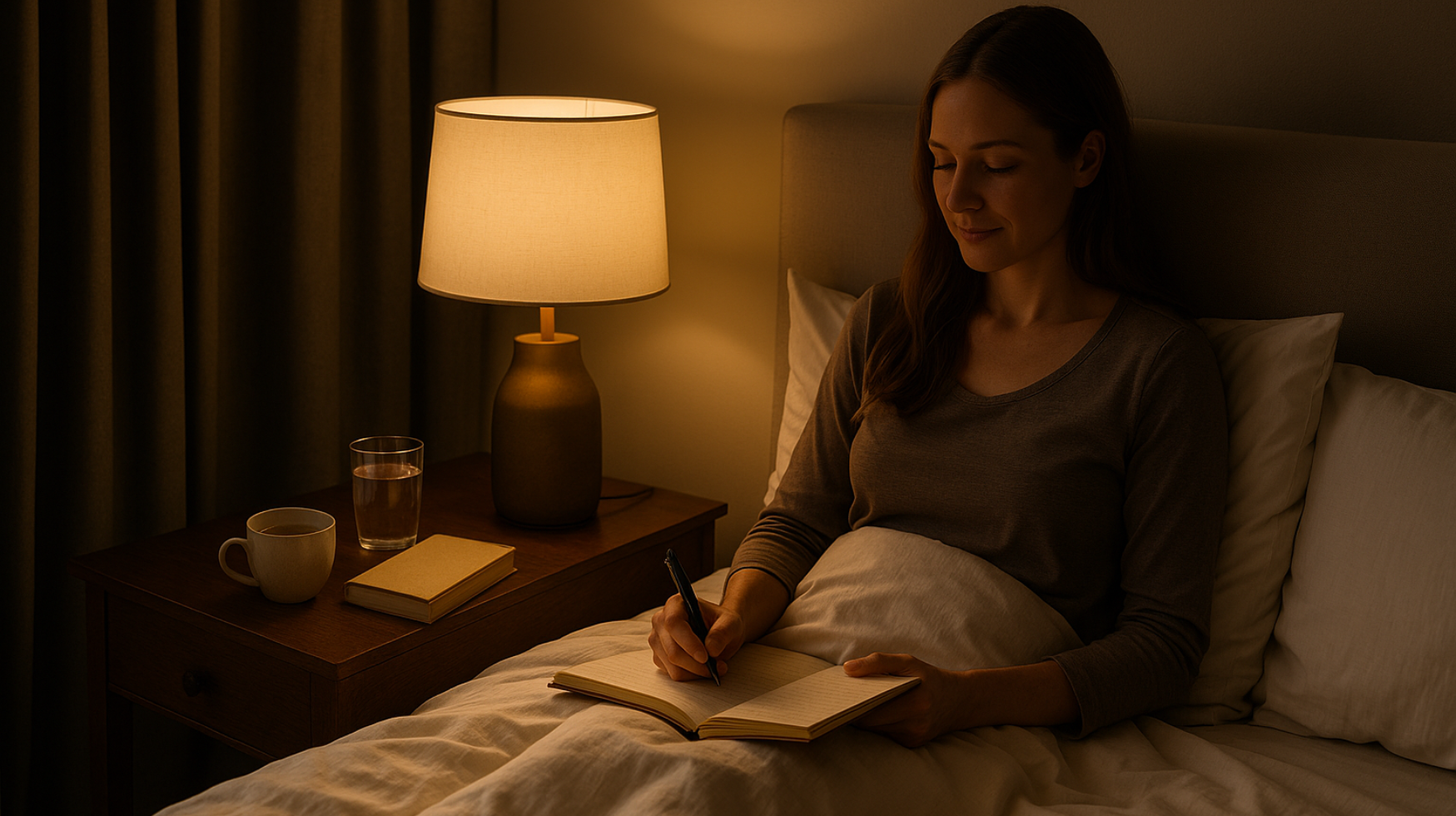Introduction: Why Sleep Quality Starts Before Bedtime
Millions of people struggle with poor sleep—difficulty falling asleep, waking up during the night, or feeling tired in the morning. While many focus on sleep duration, the real secret often lies in sleep quality. And that quality is determined by what you do in the hours before bed.
An intentional evening routine helps calm the mind, relax the body, and signal to your brain that it’s time to rest. Just like children benefit from bedtime rituals, adults also need consistent habits to prepare for restorative sleep.
This guide will show you science-backed strategies, common mistakes, and step-by-step tips for building an evening routine that improves both sleep and overall well-being.
The Science of Evening Routines
Your body operates on a circadian rhythm—a natural 24-hour clock that regulates energy, hormone production, and sleep. Evening habits like screen use, caffeine, or stress can disrupt this rhythm, making it harder to sleep deeply.
Research shows that a consistent evening routine:
- Improves sleep quality and duration.
- Reduces stress and anxiety before bed.
- Increases energy and focus the next day.
- Enhances overall health by supporting hormone balance.
Step 1: Set a Consistent Bedtime
Your body thrives on routine. Going to bed at different times confuses your circadian rhythm.
Tips:
- Choose a bedtime you can maintain every day.
- Aim for 7–9 hours of sleep.
- Use gentle reminders (alarms, apps) to start your wind-down process.
Step 2: Create a Digital Sunset
Blue light from phones, computers, and TVs suppresses melatonin (the sleep hormone).
How to Disconnect:
- Stop screen use 60–90 minutes before bed.
- Use blue-light filters if screen use is unavoidable.
- Replace scrolling with relaxing activities (reading, journaling, stretching).
Step 3: Build a Calming Environment
Your bedroom should be a sanctuary for rest.
Tips for a Sleep-Friendly Space:
- Keep the room cool (16–20°C).
- Use blackout curtains to block light.
- Invest in a supportive mattress and pillow.
- Remove clutter and electronics.
Step 4: Try Relaxation Techniques
Evenings are for slowing down.
Options:
- Deep breathing (inhale 4 sec, hold 4, exhale 6).
- Gentle yoga or stretching.
- Meditation or body scan.
- Listening to calming music or nature sounds.
Step 5: Choose Sleep-Friendly Foods and Drinks
Diet impacts sleep quality.
Do:
- Eat light, balanced dinners.
- Include foods rich in magnesium (nuts, spinach) and tryptophan (turkey, bananas).
- Drink herbal teas like chamomile or peppermint.
Avoid:
- Caffeine after early afternoon.
- Heavy, greasy meals before bed.
- Excess alcohol, which disrupts deep sleep cycles.
Step 6: Practice Gratitude or Journaling
Journaling helps release mental clutter and worries.
Ideas:
- Write down 3 things you’re grateful for.
- Reflect on one positive moment from the day.
- Note any tasks for tomorrow to clear your mind.
Step 7: Limit Stimulation Before Bed
Exciting TV shows, intense conversations, or late-night work keep the brain active. Replace them with calming rituals.
Alternatives:
- Read a physical book.
- Take a warm shower or bath.
- Do light stretches.
Step 8: Use Aromatherapy and Soothing Rituals
Senses influence relaxation.
Examples:
- Lavender essential oil for calming.
- Warm tea ritual before bed.
- Cozy blanket or weighted blanket for comfort.
Step 9: Reflect on Your Day
Instead of overthinking, create closure for the day.
Tips:
- Write tomorrow’s to-do list.
- Acknowledge what went well.
- Let go of unfinished tasks until morning.
Step 10: Stay Consistent
The power of an evening routine lies in repetition. Even if life gets busy, stick to at least a few rituals nightly.
Sample Evening Routine for Better Sleep
8:30 pm – Finish dinner, drink herbal tea.
9:00 pm – Turn off screens (digital sunset).
9:15 pm – Light stretching or yoga.
9:30 pm – Journal or gratitude writing.
9:45 pm – Read a book under soft lighting.
10:00 pm – Lights out, sleep.
Common Mistakes to Avoid
- Scrolling on your phone until bed.
- Drinking caffeine or alcohol late.
- Keeping irregular bedtimes.
- Working or eating heavy meals right before sleep.
Final Thoughts: Sleep as a Lifestyle Priority
Better sleep doesn’t come from one-off remedies—it comes from building an evening routine that signals to your mind and body: “It’s time to rest.” By practicing digital detox, creating a calming environment, eating light dinners, and reflecting before bed, you can transform your nights and wake up refreshed every day.
Remember: good sleep is a skill, and routines are the training ground.

